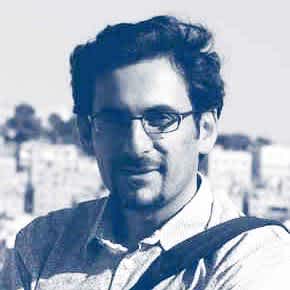- Home
- Publications
- GIGA Focus
- Corruption in the Middle East and the Limits of Conventional Approaches
GIGA Focus Middle East
Corruption in the Middle East and the Limits of Conventional Approaches
Number 5 | 2017 | ISSN: 1862-3611

Popular discontent over perceived widespread corruption was at the root of the Arab uprisings of 2011/2012 and of other upheavals worldwide since the turn of the millennium. However, the case of Jordan illustrates that conventional approaches to tackling corruption are insufficient. In order to be adequately addressed, corruption must be understood as a problem of distributive rather than criminal justice.
Like all other Arab countries, popular discontent over perceived corruption runs high in Jordan. However, what people refer to normally are not the usual cases of bribery and extortion, which remain relatively low. Rather, they refer to local practices of political patronage and favouritism known as wasta.
Diagnosing wasta as a form of corruption and a problem of legal justice has led to generally ineffective approaches to curbing it. Because wasta usually does not involve legal infringements, but instead takes place within formal legal procedures, conventional approaches to fighting corruption that stress the rule of law and transparency fail to address it.
Democratisation as such also does not solve wasta as a problem. In parliamentary politics,
wasta constitutes the bulk of the activities of any member of parliament. This contributes to the perception of members of parliament as providers of highly personal services to their constituencies rather than as legislators. It also contributes to popular perceptions of the parliament as a deeply corrupt institution.
Policy Implications
Wasta constitutes a problem when it provides differential access to common resources managed by the state. Therefore, instead of concentrating only on political and administrative reforms, development efforts should focus on rebuilding welfare-state infrastructure that provides universal access to citizens.
Perceptions of Corruption in the Middle East
Since the beginning of the 2000s, corruption has been a prominent cause of political upheavals in various parts of the world, from Eastern Europe to Asia, Africa, and Latin America, and more recently in various EU countries and the United States. In this sense, the wave of Arab uprisings between 2011 and 2012 was no exception. While the grievances articulated by activists in the Middle East have varied from one country to another depending on local histories and circumstances, corruption was the common denominator across the various countries with their different economic and political systems. Hence, many Arab countries have recently introduced political, legal, administrative, and economic reforms to tackle the perceived widespread corruption. While it might be too early to assess the full effects of these reforms, a closer look at the reforms introduced by Jordan – a country where political protests focused almost exclusively on corruption – suggests that the conventional understanding of corruption as a problem of criminal justice is insufficient. Conventional approaches to fighting corruption, such as legal and administrative reforms that promote democratisation, transparency, and the rule of law risk missing some key factors that contribute to popular perceptions of corruption (Wedel 2012). At best, these methods of addressing corruption will be insufficient; at worst, they may lead to increased social and political distrust and become grounds for the spread and legitimation of corrupt practices. An understanding of corruption as a problem of distributive justice rather than criminal justice promises better ways to address political grievances in the Middle East and beyond. Most immediately, institutions of social welfare need to be supported and developed rather than dismantled, their functions privatised.
Arab countries generally do not fare well in Transparency International’s (TI) Corruption Perception Index rankings. Somalia, Syria, Yemen, Sudan, Libya, and Iraq were amongst the lowest-ranking countries in the world in 2016 (Transparency International 2017). Jordan, by contrast, seems like a success story. It ranked 57th in the world and 4th in the Middle East and North Africa (after the UAE, Qatar, and Israel) and even improved by five points over the previous year. Popular perceptions, by contrast, diverge significantly. A recent study by TI’s local chapter indicates that 75 per cent of Jordanians believed that corruption had increased, rather than decreased, in 2016. But given how high the popular perception of corruption is, it might come as a surprise that the same study mentions that only 3 per cent of those surveyed paid bribes of one sort or another during that year. Equally surprising may be the fact that legal institutions like the judiciary and law enforcement scored high in terms of public trust, while the parliament scored the lowest (Rasheed Coalition for Integrity 2017).
These discrepancies can be explained by the notion that when Jordanians complain about entrenched corruption they usually refer not to bribery and extortion, but to a form of political patronage and intercessory mediation known as wasta. Wasta is a widespread practice in the Arab world that bears resemblance to practices in other places, such as blat in Russia (Ledeneva 1998), raccomandazione in Italy (Zinn 2001), pulling strings in the United States, protektzia in Israel (Danet 1989), Beziehungen in Germany, and guanxi in China (Smart and Hsu 2007). While the scope and political significance of these practices may vary from one place to another, they all function as economies of favours and have a vexed status in the political sphere as forms of both social solidarity and corruption. In the Middle East, wasta predominates in electoral politics. Understanding how wasta works in the political sphere and in what sense it is perceived as a form of corruption illustrates why democratisation, rule of law, and transparency are insufficient as remedies, and what alternative approaches need to be taken.
What is Wasta?
In the Arabic language, wasta can be defined as both “mediator” and “means.” Scholars of wasta often distinguish between two forms: The first is the practice of mediating between adversaries in a tribal conflict. The second is the practice of interceding on behalf of a supplicant to obtain some kind of advantage from a third party (Cunningham and Sarayrah 1993). In Jordan and the rest of the Middle East, both kinds of wasta continue to be practised, permeating all aspects of social life. Politically, they are a modality by which individuals can attain social and political ascendancy. Individuals who routinely and successfully act as wastas are highly regarded in their communities as notables or leaders. Both kinds of wasta practices have roots in tribal chieftainship that predates the modern nation-state and were subsequently appropriated and transformed by the nation-state throughout the twentieth century. While the mediatory variety of wasta continues to be practised today – especially in paralegal tribal reconciliation processes – it is the intercessory variety that matters most for ascendancy in contemporary politics, albeit with a changed scope and nature. Tribal leaders of old were morally obliged to help their kin and friends without the demand for this help to be reciprocated. By contrast, modern forms of intercessory wasta are less about the performance of tribal virtues and moral obligations and more about the instrumental giving of favours in expectation of return.
Organisational life in the Middle East relies heavily on personal relations, in both the private and the public sector. Employees, in their professional capacity, often cannot get their work done without the personal relationships within their own and other organisations. For this reason, having connections and the ability to function as a wasta for one’s job is a highly prized professional asset and represents valuable social capital. This is particularly the case in regard to those private corporations that inevitably have routine dealings with the state bureaucracy. For example, NGOs, industrial companies, and financial institutions such as banks and insurance companies often employ high-ranking retirees from the public sector in their administration and public relations departments to facilitate their dealings with the state bureaucracy and expedite the processing of their paperwork. Particularly in the public sector, individual employees rely on their wasta connections to advance professionally. The career of any individual public servant is likely to include one or several wastas. S/he may need one wasta to find a job as a day-wage or temporary employee, another to be switched to a permanent contract, another to be transferred to a different department or location within the bureaucracy, and perhaps a few others to receive promotions or allowances or be granted early or deferred retirement. Ordinary citizens are likely to seek the help of their kin and friends within the bureaucracy to facilitate or expedite various benefits such as permits, waivers, subsidies, and even the processing of simple documents and applications. As will be discussed below, these wasta intercessions do not necessarily entail violating any law or bypassing the required bureaucratic procedures; rather, they exploit uncertainties and indeterminacies that naturally exist within formal laws and procedures.
But while in this general sense wasta is a positively valued social practice, its status in the political sphere – that is to say, in relation to the state and its public resources – is inherently vexed. According to one survey conducted in 2000, 86 per cent of Jordanians considered it a form of corruption and 87 per cent thought it should be eliminated. At the same time, 90 per cent said they expected to use wasta sometime in the future and 42 per cent thought their need for it was likely to increase (Kilani and Sakijha 2002). A more recent study (National Council for Family Affairs 2015: 65–67) notes that 82.6 per cent of Jordanians consider wasta a form of corruption. At the same time, 64.9 per cent believe that wasta is necessary for finding a job, and 42.8 per cent believe it is necessary to get their bureaucratic paperwork done. These ambivalent attitudes towards wasta find their starkest expression in the domain of electoral politics, where wasta most clearly functions as an economy of favours. Especially for people without influential connections, an elected official, whether in the parliament or in local municipal councils, plays the role of the wasta mediator even if those people are outside their network of kinship and friendship. Elected officials are perceived by the electorate primarily as service providers whose job is to supply personal and highly local assistance in attaining various benefits provided and managed by the state.
Why Democratisation Is Not a Solution: The Moral Economy of Wasta in Electoral Politics
Members of parliament and elected officials in general function more as intercessory wasta connections between their constituencies and the state apparatus than as legislators. For their election, candidates rely heavily on their reputation as individuals who are able and willing to play the role of wasta between the constituency and the state. According to one former member of parliament (MP), an independent MP might dedicate 90 per cent of his or her time to wasta; one who is committed to party politics will dedicate 60 per cent. While the accuracy of such estimates is hard to verify, they are nonetheless indicative and may help explain why many political parties, including the powerful Islamic Action Front, have included independent candidates on their lists in recent elections. Within this framework, electoral candidates understand the political game primarily as a politics of patronage and an economy of favours (Blaydes 2008; Lust 2009). Preparing for elections requires that the candidate develop for him- or herself a public profile of dutifulness and beneficence through strategic acts of charity. Someone with a long career in the state apparatus can develop such a profile by providing wasta services to people in his or her future constituency. However, candidates from outside the state apparatus have other avenues at their disposal to build such a profile for themselves. For example, medical doctors can present themselves as beneficent by providing free examinations and treatment to the poor and to those without medical insurance. Wealthy candidates can do the same through public acts of philanthropy such as donations to local organisations or individuals and families in need. The candidates need not conduct acts of charity themselves; they can also help members of their constituencies by acting as conduits to networks of personal connections and acquaintances within the state bureaucracy and private institutions.
In this process, candidates gain a reputation for beneficence and are therefore expected and trusted to continue to help members of the constituency attain material needs after they are elected. Equally significant is that in the process of developing this reputation, candidates can accrue a kind of credit for the favours they have provided, which the benefactors feel should be reciprocated through voting. This reciprocal process, however, must be distinguished from two seemingly similar practices: the simple vote-for-services transaction, and explicit vote buying. Voters make a clear distinction between voting for money and voting for a candidate they really value as deserving a seat in the parliament. The practice of voting as a repayment for or reciprocation of services, while relatively common, does not represent the norm, and although it is recognised by both MPs and constituents as an instrumental practice, it is nonetheless justifiable as a fair and even necessary transaction. The case of vote buying and black money, by contrast, is seen as a clear pathological case of corruption in a way that voting in exchange for services is not. In vote-for-services cases, the voter feels morally obliged to return the favour, but need not do so, while in vote buying s/he is simply selling his vote and must receive money in return. The former are based on relations of trust, while the latter are not. Hence, the proliferation of vote buying in recent years, particularly by wealthy candidates, must be understood not as a continuation of wasta politics, but as its breakdown. It is a response to the failure to secure the bonds of trust and obligation upon which wasta is built. Here, the breakdown of wasta networks leads to outright corrupt practices.
Once a candidate is elected to parliament, the politics of patronage and the economy of favours that brought him into office take on a different guise. Election to office gives the MP access to the upper echelons of the state bureaucracy and ruling elites. From the perspective of an MP, parliament sessions are prime opportunities to meet ministers in person and petition them to fulfil specific requests from their electoral base. When face-to-face meetings are not possible, written messages travel back and forth between the MPs and ministers while parliamentary discussions are under way. But beyond the sessions themselves, MPs cultivate personal relationships with ministers and other officials in the bureaucracy. This furthers their ability to provide benefits to their constituencies, but just as often to themselves. Through connections to the bureaucracy, MPs facilitate their existing businesses, learn about new business opportunities, and may gain access to information that helps secure lucrative government contracts – particularly those that do not require calls for bids. A recent investigative report by the news website Amman Net showed that MPs in the previous parliament (2012–2016) owned businesses worth JOD 1.5 billion (EUR 1.84 billion), either personally or through their kin (Shawabkah and Ghabari 2016). While the legality of this wealth cannot be easily determined, the palpable enrichment that access to parliamentary office provides to MPs contributes to their public perception as corrupt people.
When politics is a potential business, running for parliamentary elections becomes an investment. Candidates spend excessive amounts of money on their campaigns to build their public image of beneficence, and may go into serious debt in the expectation that they will reap the rewards when they win. But the relations that the MPs cultivate with individuals in the bureaucracy are not always convivial – in fact, they can be quite contentious. MPs use their right of oversight over the executive to probe officials about real or bogus cases of corruption and misconduct and to extract benefits from them in exchange for dropping such probes and not causing future trouble for those officials. Like vote buying, the proliferation of this kind of contentious politics is a sign that the moral economy of wasta relations can no longer be easily secured. This can be clearly seen in situations where MPs fail to cultivate long-term friendships with influential officials due to class differences. An MP from a lower-class background who is unable to cultivate such friendships may resort to threats of political dissent, even the threat of personal harm inflicted against individual officials, to extract benefits for himself and his constituency. Such MPs develop a paradoxical public profile, not unlike the paradoxical perception of wasta itself. Like mafia bosses, they are perceived by their supporters as deeply corrupt people and strongmen who oppose the state’s unjust policies. Contrary to the common view that the politics of patronage produces acquiescent and docile parliaments, it can in fact lead to quite contentious parliamentary politics that build on popular sentiments of discontent, albeit without generating alternative political paradigms.
Why the Rule of Law Is Not a Solution: Wasta as a Problem of Distributive Justice
Surveys of popular perceptions of wasta (Kilani and Sakijha 2002; National Council for Family Affairs 2015) indicate ambivalent attitudes towards the practice. On the one hand, it is widely condemned as a form of corruption and, on the other, it is praised as a modality of attaining justice. These ambivalent attitudes were reflected in parliamentary discussions of Jordan’s Anti-Corruption Commission Law in 2006, which resulted in an ambiguous criminalisation of the practice. Under this law and its subsequent amendments, wasta was criminalised if it “nullifies a right or validates what is void.” Thus, while the law specifies certain kinds of wasta as a crime, it criminalises wasta only when it constitutes an infringement, without specifying what legal right it is an infringement of. Consequently, in the 11 years that have elapsed since the criminalisation of wasta, not a single case has resulted in a conviction, a record that mirrors that of other countries in the region that have also criminalised the practice, such as Palestine, Iraq, Egypt, and Saudi Arabia. According to the Jordanian Anti-Corruption Commission, wasta is a difficult crime to prove except when it intersects with other types of corruption already specified in the Jordanian Penal Code No. 16 of 1960 as “offences to public office duties,” such as bribery, graft, and embezzlement. In contrast to these other offences, wasta produces little by way of legal evidence.
One main reason why wasta leaves little evidence that can lead to a criminal case is that the majority of wasta cases are not illegal. For example, the vast majority of those who solicit wasta from MPs for employment seek jobs that require little to no skill – for instance, day labourers, drivers, foremen, guards, electric meter readers, and machine operators. When applying for these jobs, the supplicant has to satisfy the formal requirements of the position without which his application would not be accepted. Given that the number of applicants for such low-skill jobs usually exceeds the positions available, an MP’s wasta provides the final “push” that may give one applicant an advantage over all the other applicants who also satisfy the requirements and who are thus equally qualified for the job. In situations other than employment, an MP’s ability to provide wasta rests on his or her knowledge of current policies in a certain ministry or department and the likelihood of a certain application being approved at a certain moment. In other cases, the MP’s knowledge, or that of his or her acquaintances, of bureaucratic procedures allows him or her to use contradictions or loopholes in existing laws and procedures to the benefit of the supplicant. While some wasta cases are indeed criminal, the majority of them take place within formal laws and procedures – or even because of them.
The difficulty in curbing wasta lies in the confusion over its nature. The state and NGOs understand it as a form of corruption in the sense of abuse of office for private gain. Hence, they try to curb it by recourse to the usual tools of fighting corruption, which aim to enforce the rule of law through legal procedures and codes of conduct. Wasta, however, is usually not a problem of criminal justice, but one of distributive justice. That is why while wasta pervades different dimensions of social and economic life in Jordan, it constitutes a problem only when it provides differential access to common resources managed by the state or by some other corporate entity such as a private or public corporation. Bureaucratic justice requires that citizens are given equal access to these resources; thus, bureaucrats must, in principle, treat different citizens with equal indifference. Being equal, citizens become substitutable options among which the bureaucrat may choose as s/he pleases as long as the choice fits the formal criteria of their similarity. Here, the role of wasta is to provide that extra-bureaucratic preference, which inevitably supplements legal and bureaucratic indifference.
For citizens, the discrepancy between the state’s promise of formal and legal equality and the glaring fact of social inequality only breeds public suspicion towards the state apparatus. Yet, the strict application of law and procedures cannot eliminate wasta because, in most cases, it is not illegal. At the same time, the implementation of codes of ethics and standards of transparency legitimises highly invasive practices that infringe on the private lives of officials and their social circles. The mere appointment of an official’s relative to the bureaucracy, or his or her winning of a public contract, can be sufficient cause for public suspicion of wasta. Within this space of public suspicion, wasta emerges as both the problem and the most viable solution. Citizens feel that wasta is the cause of the social injustice to which they are subjected, but it is also a way for them to achieve social justice. This is the dynamic that plays out in electoral politics and that democratisation fuels further.
Universal Welfare and Service Provision as a Possible Remedy
One concrete example can help illustrate how wasta as a problem of distributive justice can be tackled. Jordan provides free health coverage in public health facilities for citizens below the age of six and above the age of sixty. Those between the ages of six and sixty need to either buy private health insurance or pay healthcare costs out of their own pocket. Those who cannot afford healthcare and suffer from medical conditions that require long-term and costly treatment could petition the Ministry of Health or the Royal Court to receive a fixed-term healthcare subsidy in public health facilities. Prior to 2012, however, these subsidies were not easy to get, often taking a long time to obtain. Citizens often solicited MPs’ wasta to obtain these subsidies in a timely manner. When, in 2012, the Royal Court announced a clear set of criteria for obtaining these subsidies and provided them immediately to anyone who met the criteria, the MPs’ wasta was no longer necessary. This, however, caused the subsidy budget to soar in 2013 to approximately JOD 800 million (EUR 990 million), up from JOD 300 million (EUR 370 million) in the previous year. While this solution may not be sustainable in the long term, a robust system of universal health coverage in public facilities could be a viable alternative.
Tackling wasta as a source of public suspicion of corruption requires shifting the focus from criminal justice to distributive justice. This would help overcome the limitations of conventional global anti-corruption policies in dealing with similar practices in the Middle East and beyond. The competition over limited resources that fuels wasta can be reduced through universal welfare and public service programmes.
Footnotes
References
Blaydes, Lisa (2008), Authoritarian Elections and Elite Management: Theory and Evidence from Egypt, unpublished conference paper, Princeton University Conference on Dictatorships, April.
Cunningham, Robert B., and Yasin K. Sarayrah (1993), Wasta: _The Hidden Force in Middle Eastern Society, Westport, CT: Praeger.
Danet, Brenda (1989), Pulling Strings: Biculturalism in Israeli Bureaucracy, Albany, NY: State University of New York Press.
Kilani, Sa’eda, and Basim Sakijha (2002), Wasta in Jordan: The Declared Secret, Amman: The Arab Archives Institute.
Ledeneva, Alena (1998), Russia’s Economy of Favours: Blat, Networking, and Informal Exchange, Cambridge/New York, NY: Cambridge University Press.
Lust, Ellen (2009), Competitive Clientelism in the Middle East, in: Journal of Democracy, 20, 3, 122–135.
National Council for Family Affairs (2015), Taqrir ’Ahwal al-’Usrah al-’Urduniyyah 2015 (Report on the Conditions of the Jordanian Family 2015), Amman, http://ncfa.org.jo:85/NCFA/ar/node/634 (24 June 2017).
Rasheed Coalition for Integrity (2017), The National Integrity System (NIS) Jordan, Amman: Transparency International – Jordan, www.transparency.org/whatwe do/publication/the_national_integrity_system_jordan (7 January 2017).
Shawabkah, Mus‘ab, and Muhammad Ghabari (2016), ‘Ata’at bi-l-Malayin fi Juyub Nuwwab Sabiqin (Contracts Worth Millions in the Pockets of Former Parliamentarians), in: Amman Net (7 July 2017).
Smart, Alan, and Carolyn L. Hsu (2007), Corruption or Social Capital? Tact and the Performance of Guanxi in Market Socialist China, in: Monique Nuijten and Gerhard Anders (eds): Corruption and the Secret of Law: A Legal Anthropological Perspective, 167–190.
Transparency International (2017), Corruption Perceptions Index 2016, Berlin, http://files.transparency.org/content/download/2089/13368/file/2016_CPIRe port_EN.pdf (30 July 2017).
Wedel, Janine R. (2012), Rethinking Corruption in an Age of Ambiguity, in: Annual Review of Law and Social Science, 8, 1, 453–498.
Zinn, Dorothy Louise (2001), La raccomandazione: Clientelismo vecchio e nuovo, Rome: Donzelli.
General Editor GIGA Focus
Editor GIGA Focus Middle East
Regional Institutes
Research Programmes
How to cite this article
Doughan, Yazan (2017), Corruption in the Middle East and the Limits of Conventional Approaches, GIGA Focus Middle East, 5, Hamburg: German Institute for Global and Area Studies (GIGA), http://nbn-resolving.de/urn:nbn:de:0168-ssoar-53438-8
Imprint
The GIGA Focus is an Open Access publication and can be read on the Internet and downloaded free of charge at www.giga-hamburg.de/en/publications/giga-focus. According to the conditions of the Creative-Commons license Attribution-No Derivative Works 3.0, this publication may be freely duplicated, circulated, and made accessible to the public. The particular conditions include the correct indication of the initial publication as GIGA Focus and no changes in or abbreviation of texts.
The German Institute for Global and Area Studies (GIGA) – Leibniz-Institut für Globale und Regionale Studien in Hamburg publishes the Focus series on Africa, Asia, Latin America, the Middle East and global issues. The GIGA Focus is edited and published by the GIGA. The views and opinions expressed are solely those of the authors and do not necessarily reflect those of the institute. Authors alone are responsible for the content of their articles. GIGA and the authors cannot be held liable for any errors and omissions, or for any consequences arising from the use of the information provided.









